Inventionland® Education Provides the Complete STEM Ecosystem to K-12 Schools
STEM (Science, Technology, Engineering, and Mathematics) education has become increasingly crucial as we progress toward a more technology-driven world. Providing students with the skills and knowledge necessary to succeed in this rapidly evolving field is essential.
Inventionland® Education has revolutionized STEM education by creating a complete ecosystem for K-12 schools that includes:
- Immersive Innovation Labs®
- K-12 applied STEM invention curriculum
- STEM and maker space professional learning
- Invention Contests for students
- Teacher Resources for STEM-related projects
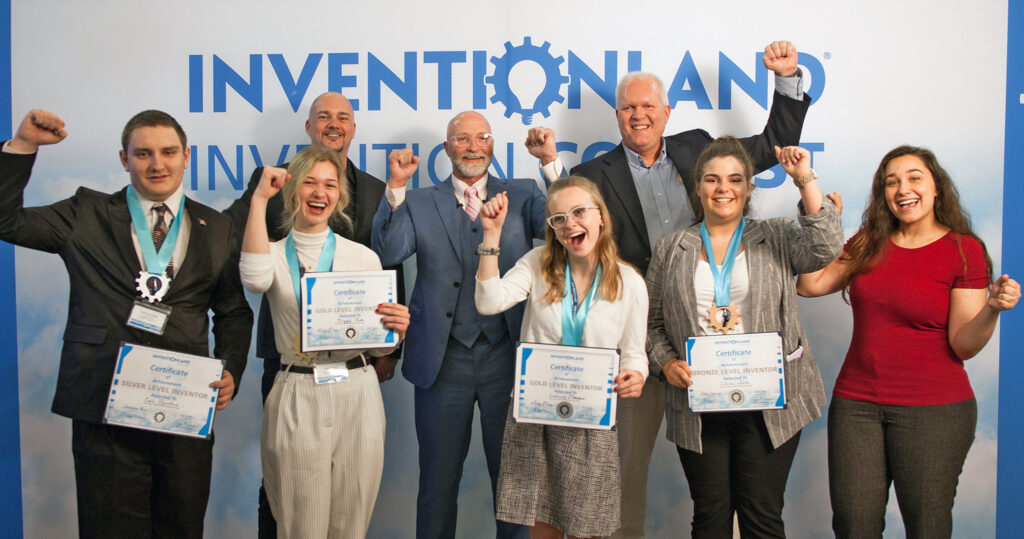
Innovation Labs® are at the core of Inventionland® Education’s ecosystem. These labs are award-winning, state-of-the-art facilities designed to spark creativity and innovation in students. They are designed specifically for maker spaces and STEM learning, which supports technology and maker space tools to allow students to explore STEM subjects through hands-on activities. In addition, innovation labs are designed to be flexible, adaptable, and easily customized to fit the specific needs of each school.
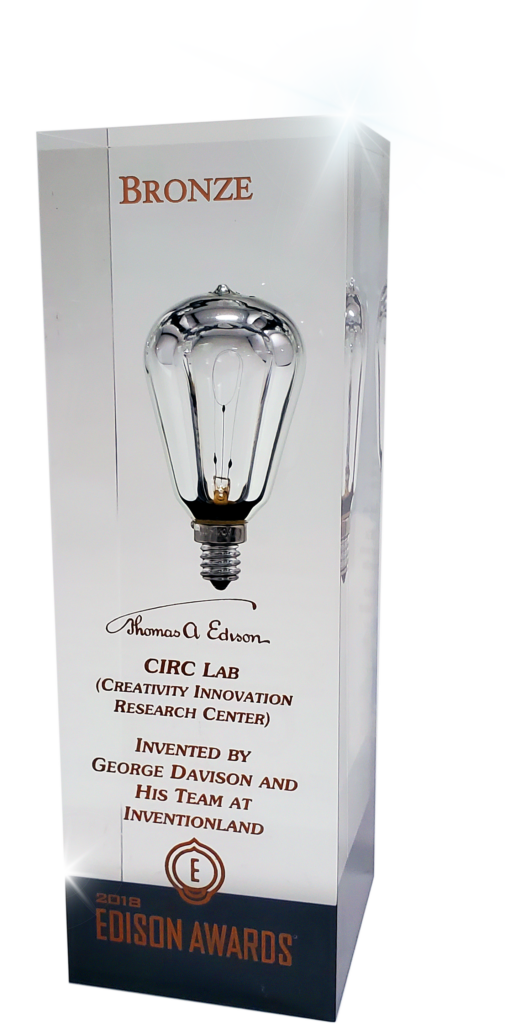 Inventionland® Education’s Innovation Labs has won numerous awards, including the Edison Award, one of the most prestigious design awards, won on behalf of the Seneca Valley School District. It was the first time a school had ever won an Edison award (bronze). Other winners include Elon Musk and Steve Jobs.
Inventionland® Education’s Innovation Labs has won numerous awards, including the Edison Award, one of the most prestigious design awards, won on behalf of the Seneca Valley School District. It was the first time a school had ever won an Edison award (bronze). Other winners include Elon Musk and Steve Jobs.
Most recently, Inventionland®won two prominent awards for their work with Berkshire Local Schools as part of their $51 million new campus. In addition, two stalwarts in the publishing industry, Learning by Design and Spaces4Learning magazines, recently announced their awards.
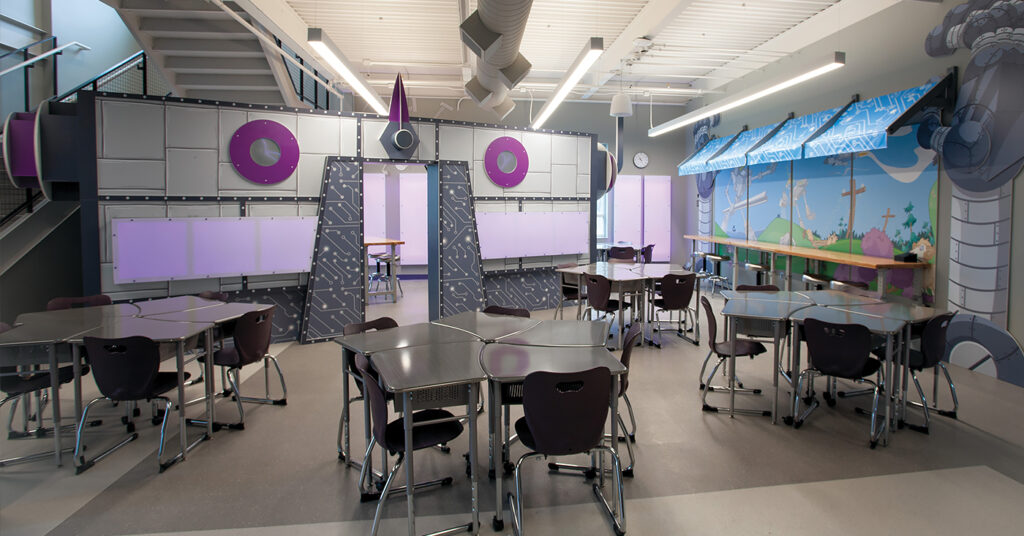
The labs are designed to be engaging, fun, and accessible to students of all ages and backgrounds. They are an excellent way to introduce students to STEM subjects in an environment that helps them develop their skills to succeed.
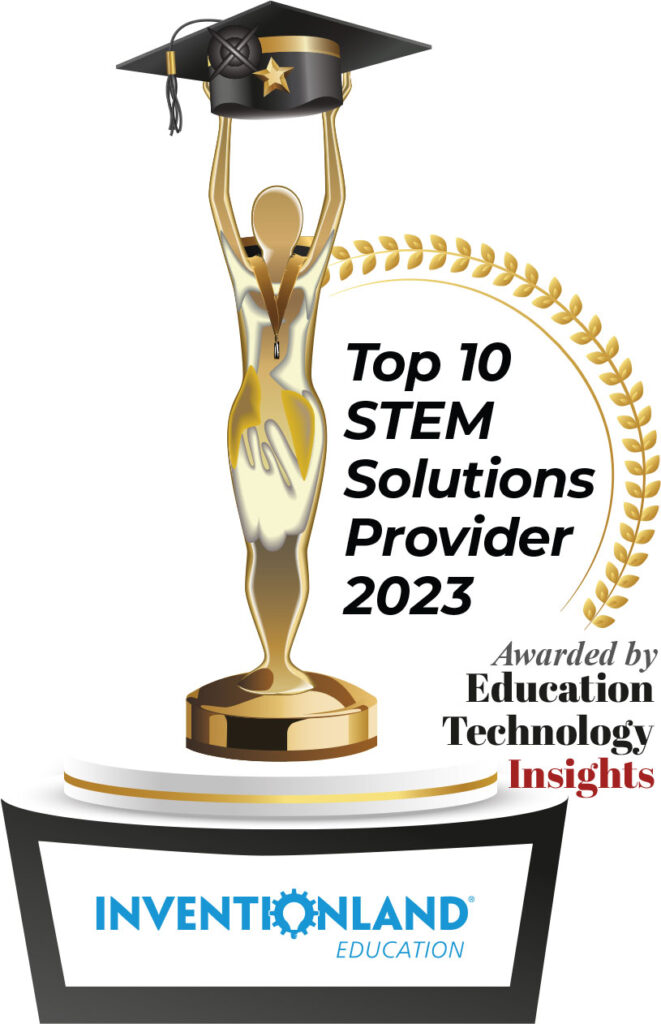 Education Technology Insights magazine and portal recently named their K-12 Applied STEM Invention Curriculum a 2023 Top 10 STEM Services Provider.
Education Technology Insights magazine and portal recently named their K-12 Applied STEM Invention Curriculum a 2023 Top 10 STEM Services Provider.
The K-12 applied STEM invention curriculum is another critical component of Inventionland® Education’s ecosystem.
The curriculum is carefully constructed to be hands-on, student-driven, and engaging, allowing students to explore applied STEM concepts in a fun and exciting way. In addition, the curriculum is aligned with national and state standards, ensuring that students receive a high-quality education that prepares them for success in the field.
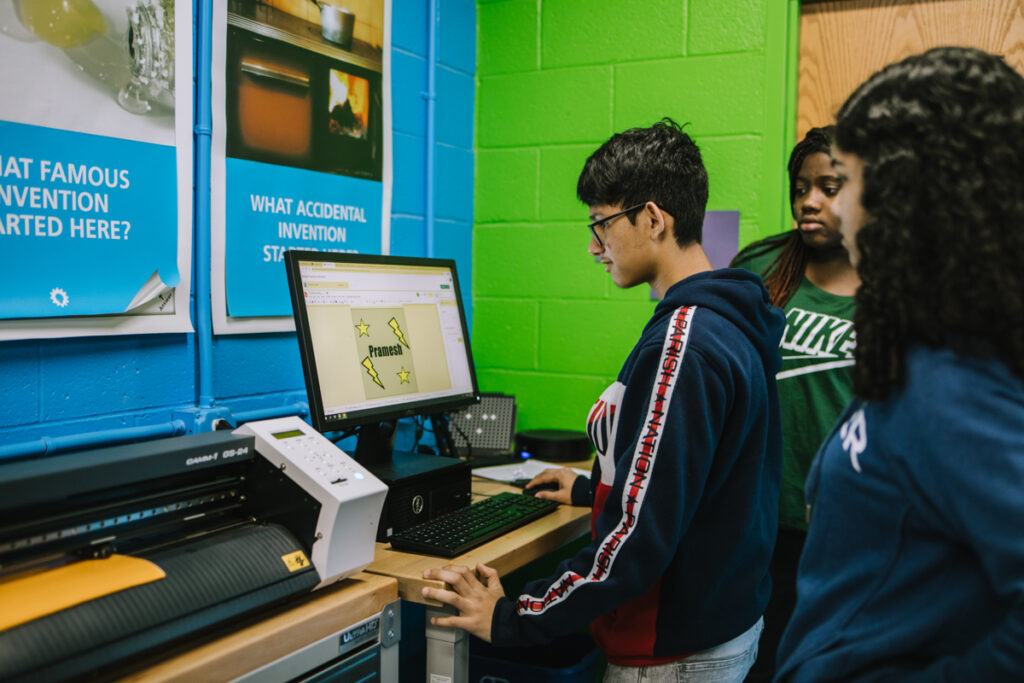
In the course, students work in small groups to develop their inventions or innovations, culminating with an end-of-course Invention Contest before a panel of judges. The invention contests may best be described as a “science fair on steroids.”
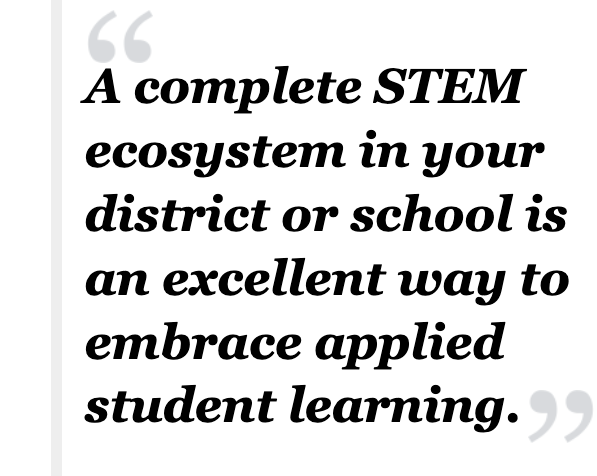
Inventionland® Education also has a wide range of professional learning options, ranging from topical workshops that are two, four, or full-day sessions.
Inventionland®also offers a Day of STEM Innovation for educators, which can be extended to three full days for a truly immersive experience. Professional development programs generally focus on maker space technology, such as laser and vinyl cutting, package design, prototyping with cardboard, and much more.
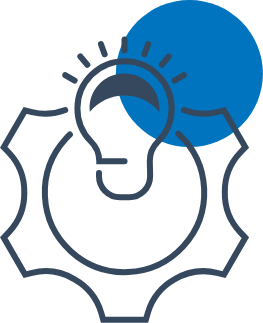
This supports deep learning with hands-on projects, along with project-based learning. In addition, educators are shown how to use the maker equipment and use this safely and effectively in the classroom environment.
As part of their completer STEM ecosystem approach, Inventionland® Education also has teacher resources that are available for purchase. This includes maker supplies, posters, and much more so educators can seamlessly interact with new ideas and introduce projects in their classrooms without hassle.
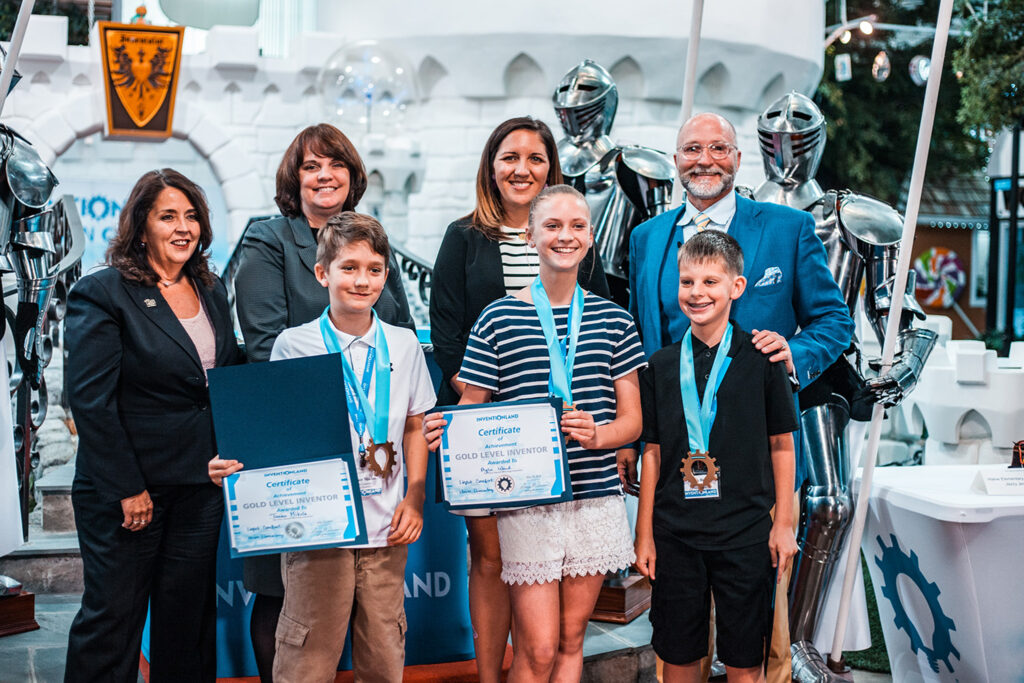
Inventionland® Education also provides complimentary mentoring sessions with industry professionals. This assists students and educators alike since the mentors are working professionals at the top of their game.
Having a complete STEM ecosystem in your district or school is an excellent way to embrace applied student learning. In addition to the applied STEM concepts, students also learn valuable soft skills. This includes creative thinking, collaboration, time management, and presentation skills.